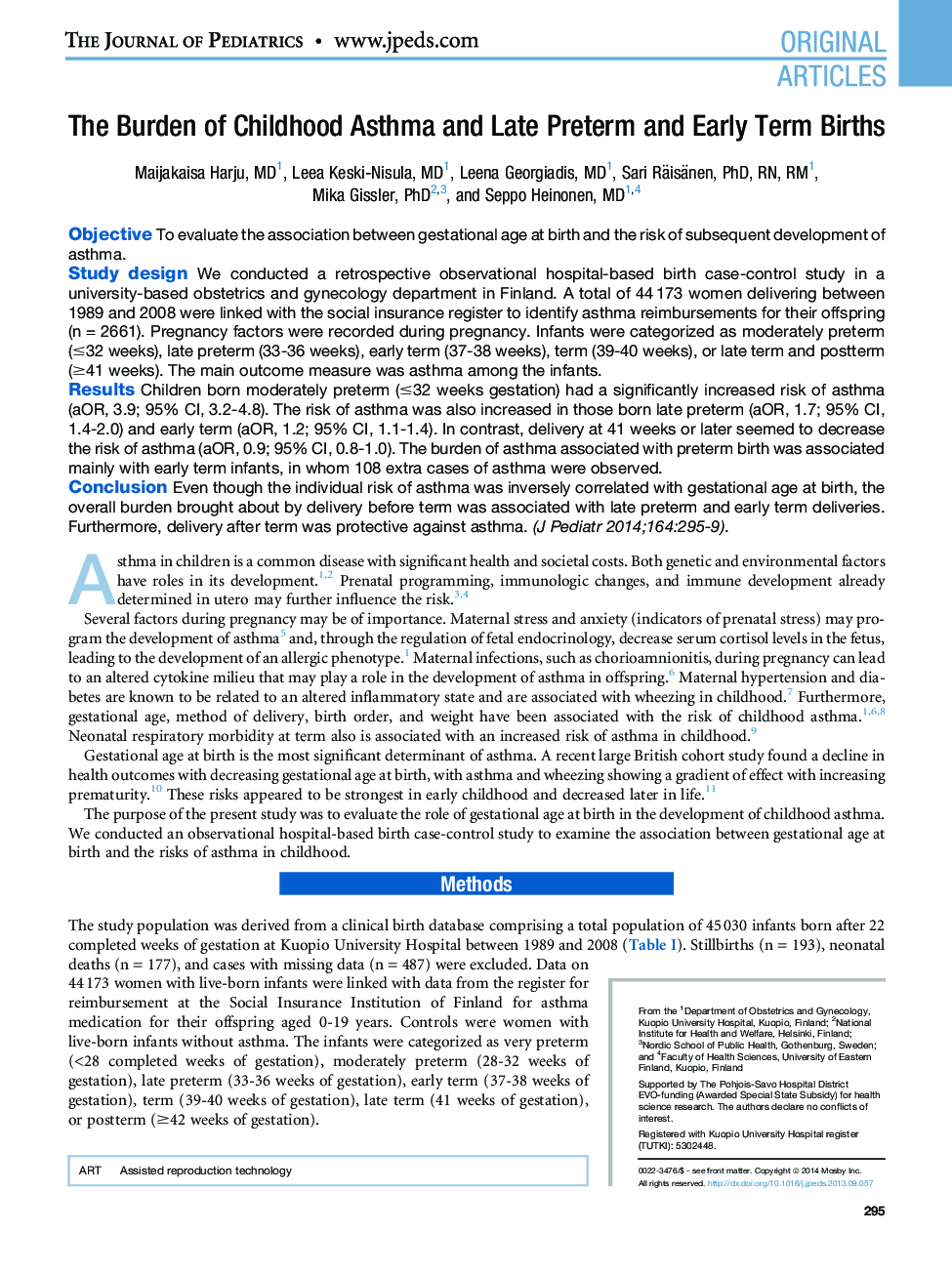| Article ID | Journal | Published Year | Pages | File Type |
|---|---|---|---|---|
| 6221885 | The Journal of Pediatrics | 2014 | 6 Pages |
ObjectiveTo evaluate the association between gestational age at birth and the risk of subsequent development of asthma.Study designWe conducted a retrospective observational hospital-based birth case-control study in a university-based obstetrics and gynecology department in Finland. A total of 44â173 women delivering between 1989 and 2008 were linked with the social insurance register to identify asthma reimbursements for their offspring (n = 2661). Pregnancy factors were recorded during pregnancy. Infants were categorized as moderately preterm (â¤32 weeks), late preterm (33-36 weeks), early term (37-38 weeks), term (39-40 weeks), or late term and postterm (â¥41 weeks). The main outcome measure was asthma among the infants.ResultsChildren born moderately preterm (â¤32 weeks gestation) had a significantly increased risk of asthma (aOR, 3.9; 95% CI, 3.2-4.8). The risk of asthma was also increased in those born late preterm (aOR, 1.7; 95% CI, 1.4-2.0) and early term (aOR, 1.2; 95% CI, 1.1-1.4). In contrast, delivery at 41 weeks or later seemed to decrease the risk of asthma (aOR, 0.9; 95% CI, 0.8-1.0). The burden of asthma associated with preterm birth was associated mainly with early term infants, in whom 108 extra cases of asthma were observed.ConclusionEven though the individual risk of asthma was inversely correlated with gestational age at birth, the overall burden brought about by delivery before term was associated with late preterm and early term deliveries. Furthermore, delivery after term was protective against asthma.
